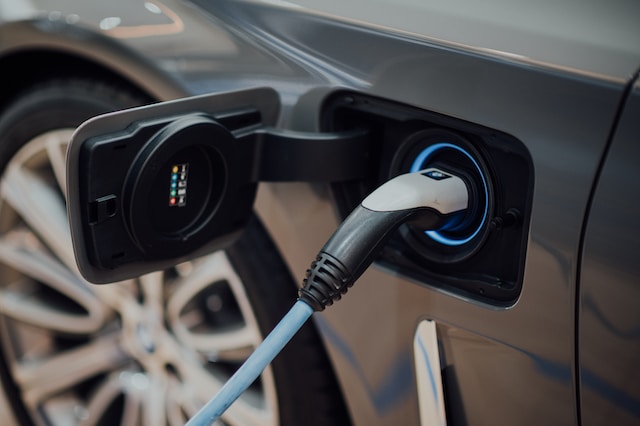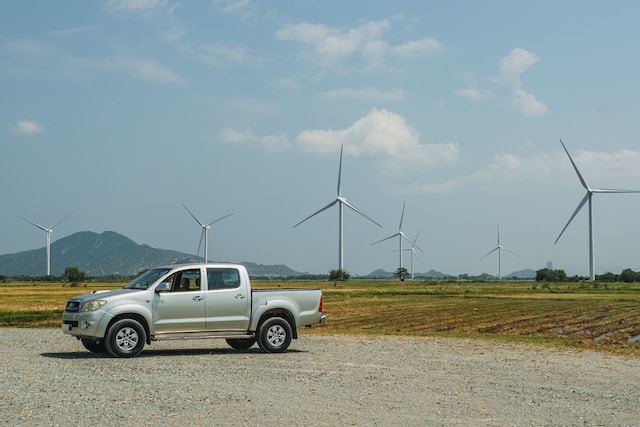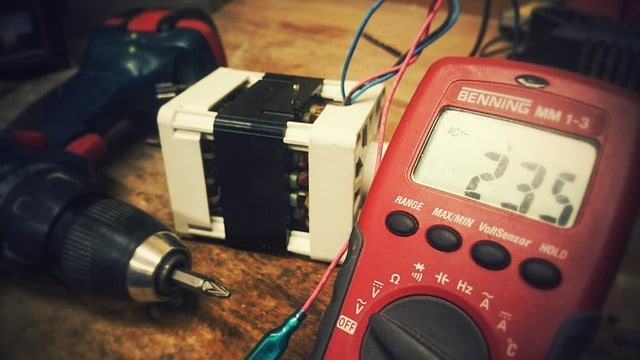Tradies Rolling Electric In NZ – Everything You Need To Know

In recent years, the electric vehicle (EV) revolution has taken the automotive industry by storm, with an increasing number of electric cars silently cruising our roads in NZ. However, the adoption of electric vehicles isn’t limited to personal transportation; it’s making waves in the trades industry as well.
If you work in the trades, or if you are are looking to become a tradie, you should know: builders, electricians, HVAC Technicians and plumbers in NZ are now faced with the decision of whether to switch from traditional petrol or diesel work trucks to electric vans or utes. In this discussion, we’ll delve into the pros and cons of embracing electric work vehicles in the trades sector, focusing on the unique considerations for those in New Zealand and Australia.
The Rise of Electric Vehicles in the NZ Trades
As sustainability becomes a focal point in various industries, the trades sector is no exception.
The increasing concern over environmental impact, coupled with advancements in electric vehicle technology, has prompted a growing number of NZ tradespeople to consider making the switch to electric work vehicles.
When making the decision on whether to stick to combustion engines or make the swap over to electric – either for personal use or your entire company’s fleet – it is crucial to weigh up the pros and cons before taking the plunge.
The Pros of Electric Work Vehicles for Trades in NZ:
Environmental Impact:
Embracing electric work vehicles significantly reduces carbon emissions, contributing to a cleaner and greener environment.
For tradespeople who operate in urban areas with stringent emission regulations, or for those who simply like the idea of a cleaner way to travel, electric vehicles offer a sustainable solution.
Running Costs:
Electric vehicles generally have lower running costs compared to their petrol or diesel counterparts.
An electric ute, such as the Ford 150 Lightning – can have up to 90% fewer moving components when compared to its petrol or diesel counterpart. With fewer moving parts and less reliance on fossil fuels, maintenance expenses are often reduced, providing long-term financial benefits.
NZ Electric Vehicle Government Incentives:
Governments in both New Zealand and Australia are actively promoting the adoption of electric vehicles.
This includes financial incentives, tax credits, and subsidies for businesses transitioning to electric fleets, making the switch more economically appealing, and lessening the upfront financial blow.
Take a look at the New Zealand Clean Rebate overview – you could get over $7000 back on your purchase of a new electric vehicle!
Reduced Noise Pollution:
Electric vehicles operate quietly, reducing noise pollution in urban and residential areas in NZ.
For tradespeople working in noise-sensitive environments or within close proximity to residential homes, this can enhance community relations.
Positive Brand Image:
Adopting electric work vehicles aligns with the growing consumer preference in NZ for environmentally responsible businesses. This can enhance the image of trades businesses, potentially attracting eco-conscious clients and providing a competitive edge.
It can also align with business branding, for example, if your business specialises in installing solar and battery packs, having a fleet of eco friendly vehicles aligns with your theme, compared to rolling up in diesel trucks to install clean energy.
The Cons of Electric Work Vehicles in NZ for Trades:
Initial Cost:
The upfront cost of electric work vehicles in NZ is typically higher than their traditional counterparts. This initial investment can be a deterrent for tradespeople with budget constraints, despite potential long-term savings. This may be counteracted by the clean car rebate – while it lasts.
NZ Electric Charging Infrastructure:
While charging infrastructure is expanding, it may not be as widespread or convenient as traditional refuelling options, especially in rural or remote areas.
Limited charging stations can pose challenges for tradespeople on the move, especially in the more rural areas, out in the country.
Range Anxiety:
Electric vehicles often have a limited range compared to petrol or diesel vehicles. Tradespeople who cover extensive distances for their work may experience range anxiety, worrying about running out of charge before reaching their destination.
To put this into perspective, Ford Rangers can travel up to 900km on a single tank of diesel, whereas the Ford F150 Lightning has a range of approximately 480kms before needing a charge
Charging Time:
Charging an electric vehicle takes longer than refuelling a traditional vehicle. This can disrupt work schedules, especially if quick turnarounds between jobs are essential. Fast-charging options are improving but may not be universally accessible.
Payload Capacity:
Electric work vehicles may have limitations on payload capacity due to the weight of the battery. For example, the LDT et60 has a 330km range, that gets reduced by 50% when towing its capacity of 1,500kg. This is because of the added strain on the battery, to pull the extra weight.
This can be a concern for tradespeople who require substantial carrying capacity for tools, equipment, and materials, however, for those looking to work in and around the city, this impact on range shouldnt be a problem.
Key Considerations for Trades Professionals:
Work Requirements:
Assess the specific needs of your trade. If your work primarily involves short-distance, urban jobs, an electric vehicle may be a practical and beneficial choice.
However, for those who frequently undertake long journeys or require heavy payloads, traditional vehicles might be more suitable, especially for working jobs out in rural areas, away from a charging network.
Electric Charging Infrastructure in NZ
Evaluate the availability of charging infrastructure in your operational areas. Urban and suburban regions are more likely to have comprehensive charging networks, whereas remote locations may still pose challenges.
Financial Planning:
Consider the long-term financial implications, including potential savings on running costs and available government incentives. Calculate the total cost of ownership over the vehicle’s lifespan, and compare it with the cost of providing fuel to a combustion fleet, to make an informed decision.
Electric Technology Advancements:
Stay informed about advancements in electric vehicle technology. The industry is evolving rapidly, with improvements in battery technology, charging infrastructure, and vehicle capabilities. Waiting for the next generation of electric work vehicles may offer enhanced features.
Transition Strategy:
If the initial cost is a concern, consider a phased transition. Introduce electric vehicles gradually into your NZ fleet as older vehicles require replacement, spreading out the investment over time.
In The End, Its All About Striking the Right Balance
In the pursuit of a sustainable and efficient future, the trades industry is at a crossroads with the choice between traditional and electric work vehicles. Striking the right balance requires careful consideration of individual business needs, operational requirements, and the evolving landscape of electric vehicle technology.
While electric work vehicles in NZ offer undeniable environmental benefits, the decision to switch should align with practical considerations such as charging infrastructure, payload requirements, and financial feasibility. The trades industry’s adoption of electric vehicles represents not only a commitment to environmental responsibility but also an opportunity for long-term savings and enhanced operational efficiency.
As electric vehicle technology continues to advance, and charging infrastructure becomes more widespread, the trades sector is poised for a significant transformation. For now, the key lies in making informed decisions that balance sustainability with the practical demands of a dynamic and diverse industry.
Get your business noticed by creating an online directory listing. Listings are FREE and you can create as many as you need.
- Get found by locals



